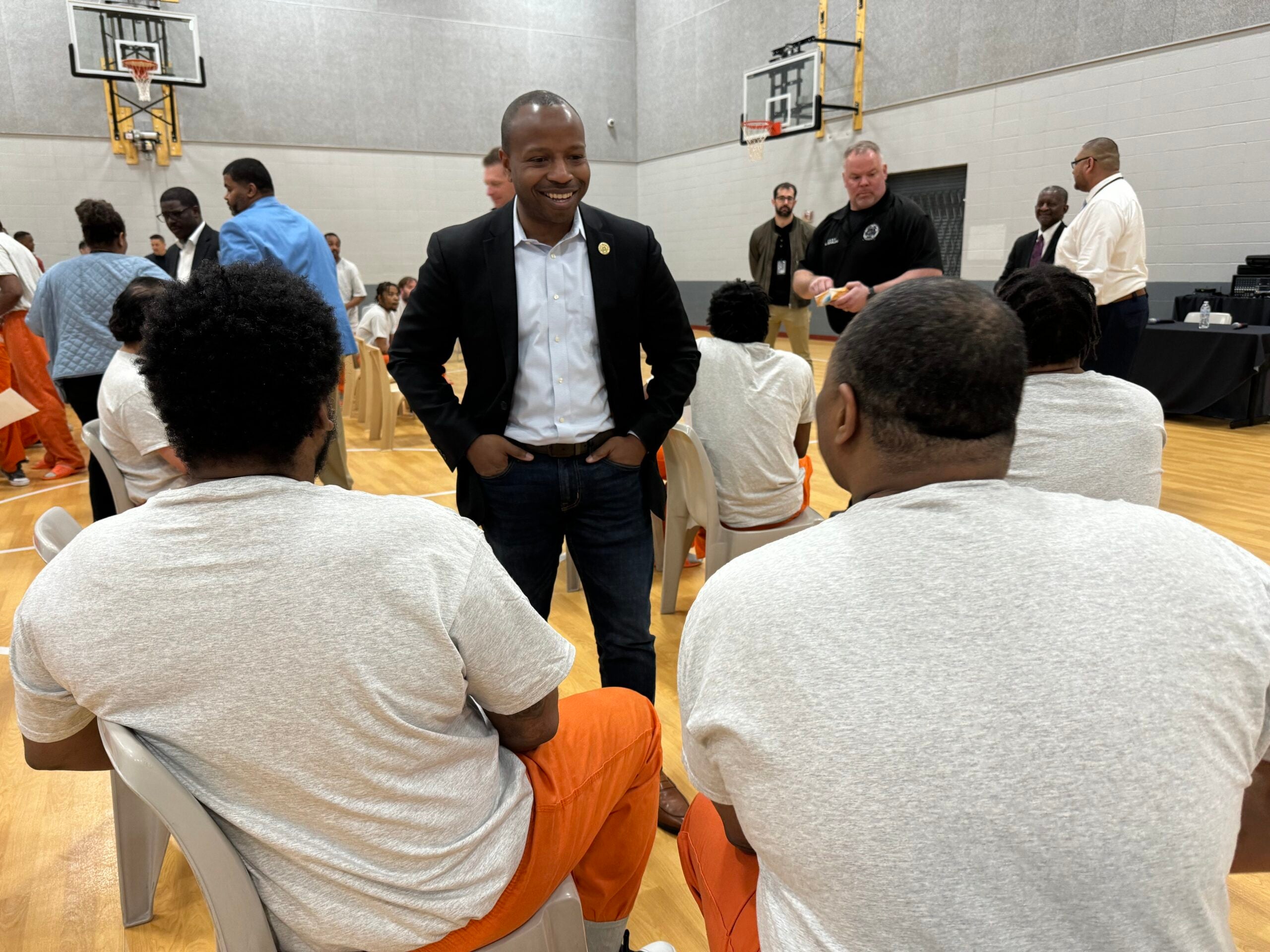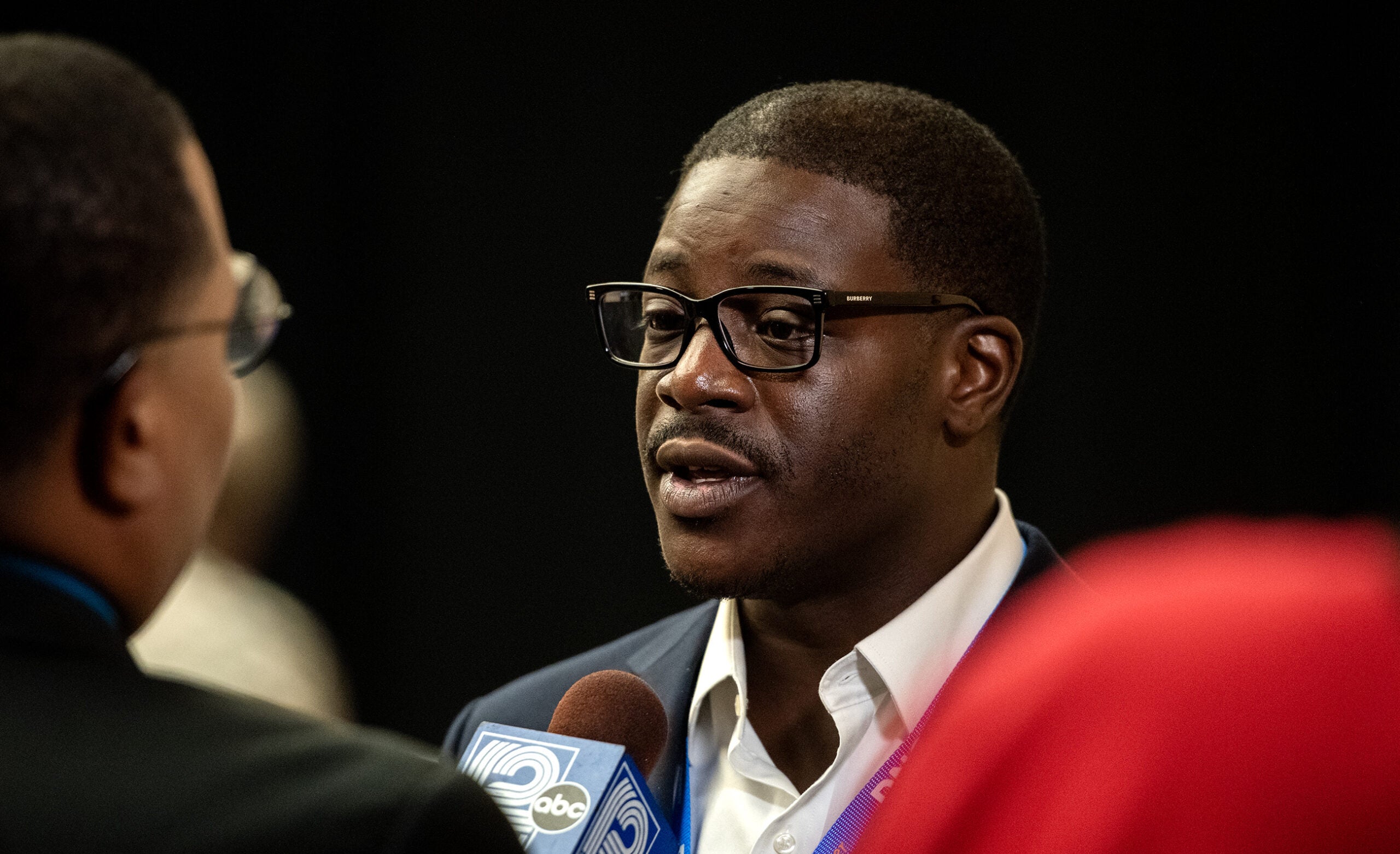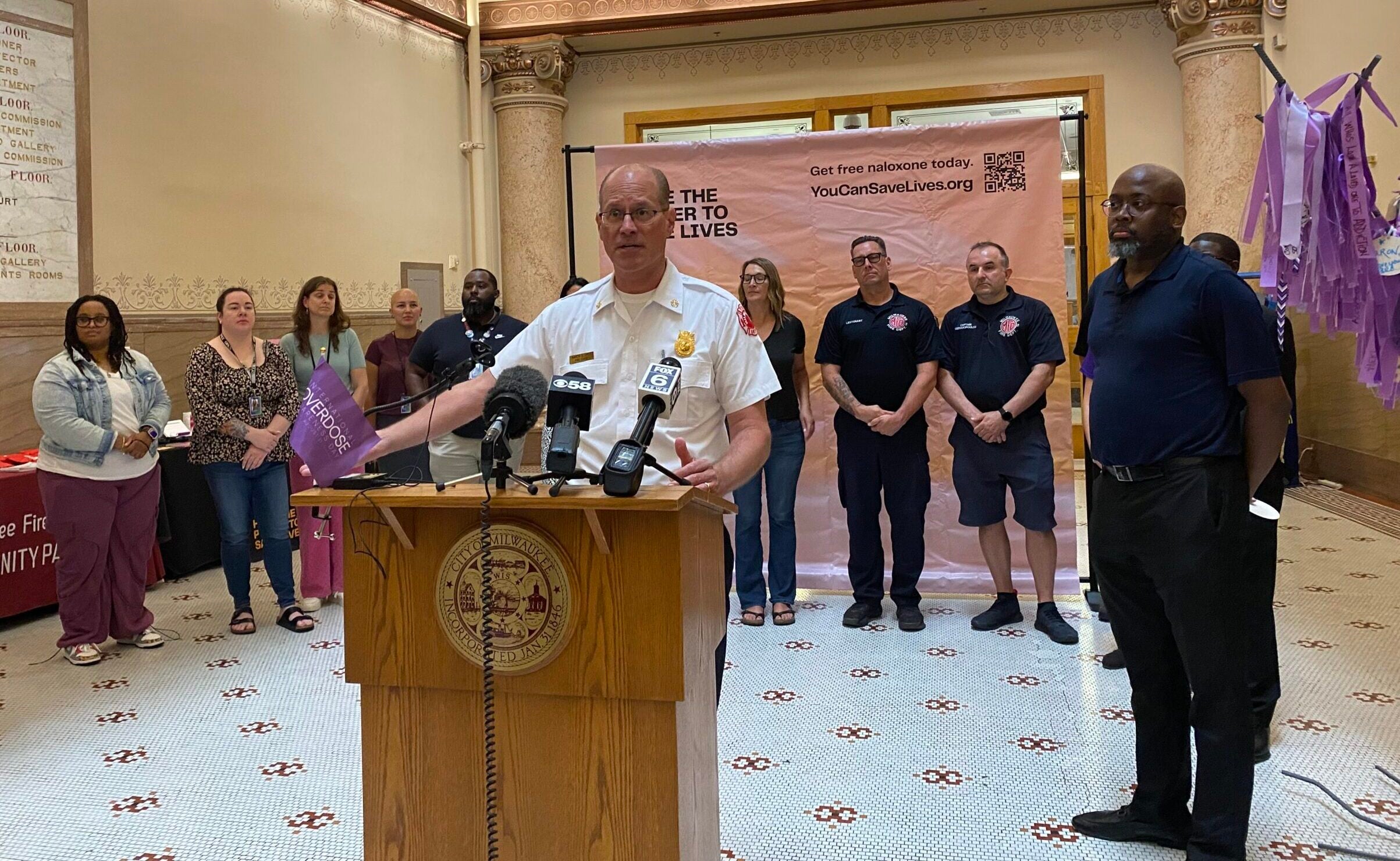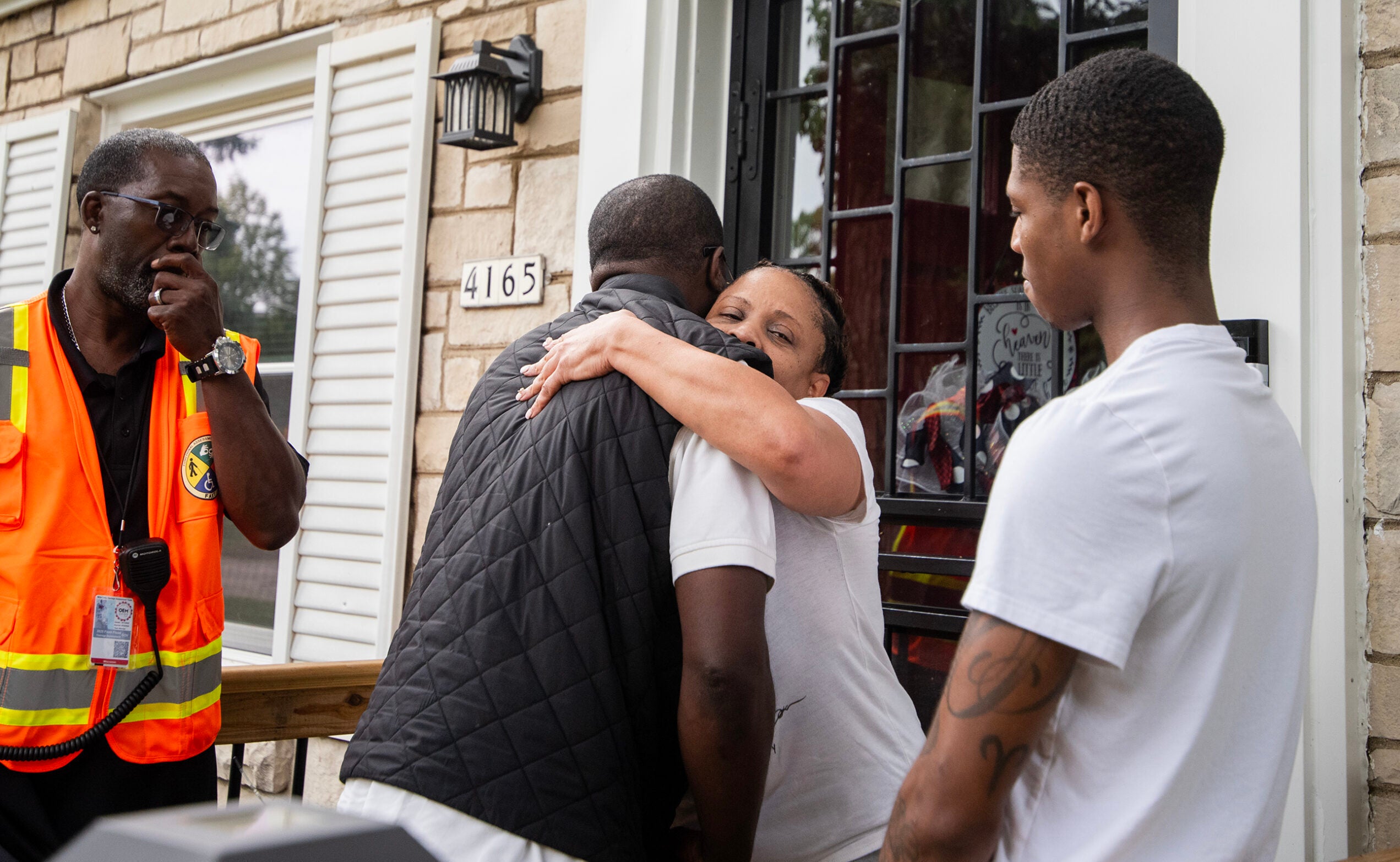With a wide grin on his face, Perry Marshall took a seat in the back of the gym at the Milwaukee County Community Reintegration Center on Friday morning.
Minutes later, he was able to meet and shake hands with Milwaukee Mayor Cavalier Johnson and Milwaukee County Executive David Crowley. He sat and listened as they talked about their experiences of growing up in Milwaukee and overcoming hardships.
“It’s magnificent that I can be in the presence of higher authority around here,” Marshall said.
News with a little more humanity
WPR’s “Wisconsin Today” newsletter keeps you connected to the state you love without feeling overwhelmed. No paywall. No agenda. No corporate filter.
After the event, the 58-year-old said he felt “very encouraged.”
Johnson and Crowley, along with Milwaukee County Chief Judge Carl Ashley, spoke about the importance of having a purpose in life, as well as the benefits of having a mentor.
“When I get up out of here, I know my mindset and what I’ve got to do,” Marshall said. “I want to be a mentor and come back here and talk to the guys, because I did 18 and a half years straight, so I know how it feels to fall off track and get back on track, so I want to get back on track.”
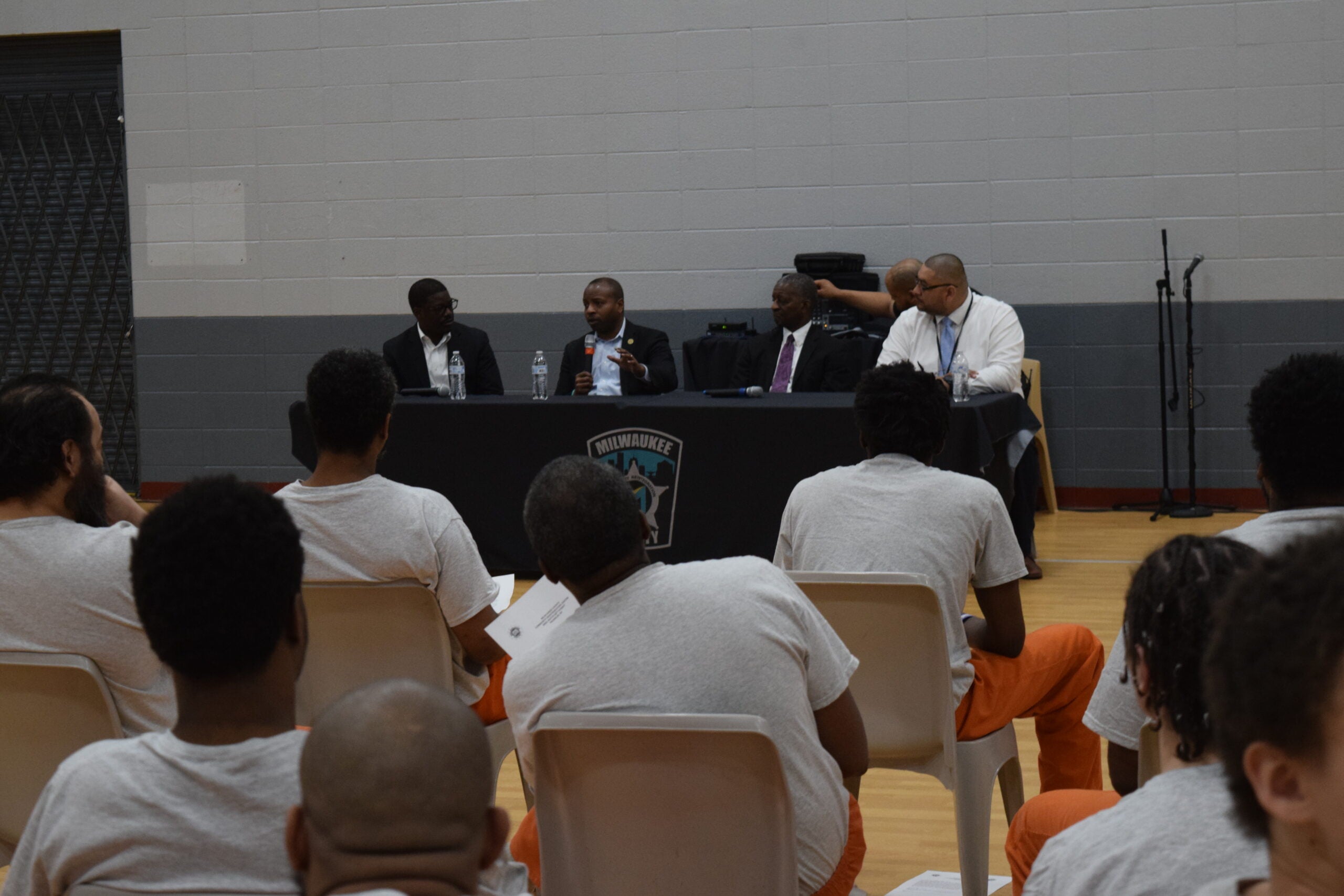
Marshall was one of around 30 people to hear directly from Johnson and Crowley at the panel.
Johnson, Milwaukee’s first elected Black mayor, shared that he often moved around with his family when he was a kid. He attended six different schools throughout the city and lived in Milwaukee’s troubled 53206 zip code.
“You name it, I’ve been there,” Johnson said.
At a young age, he said he made a conscious decision to “get off the block.”
“That’s what my dad would tell me all the time: ‘You need to get off the block, expand your horizons.’ And when you do, it opens up a whole new world for you. It certainly did for me,” he said.
After the event, the mayor said he came to speak to show people at the facility there’s hope for them when they’re released back into the community.
“They should know there are people out there in the community — not just in the neighborhoods, but even in government like myself, who are counting on them to succeed,” Johnson said.
“I really want to show them that there’s really not much of a difference between the situations that I grew up in Milwaukee, and those that they have growing up here, too,” he added.
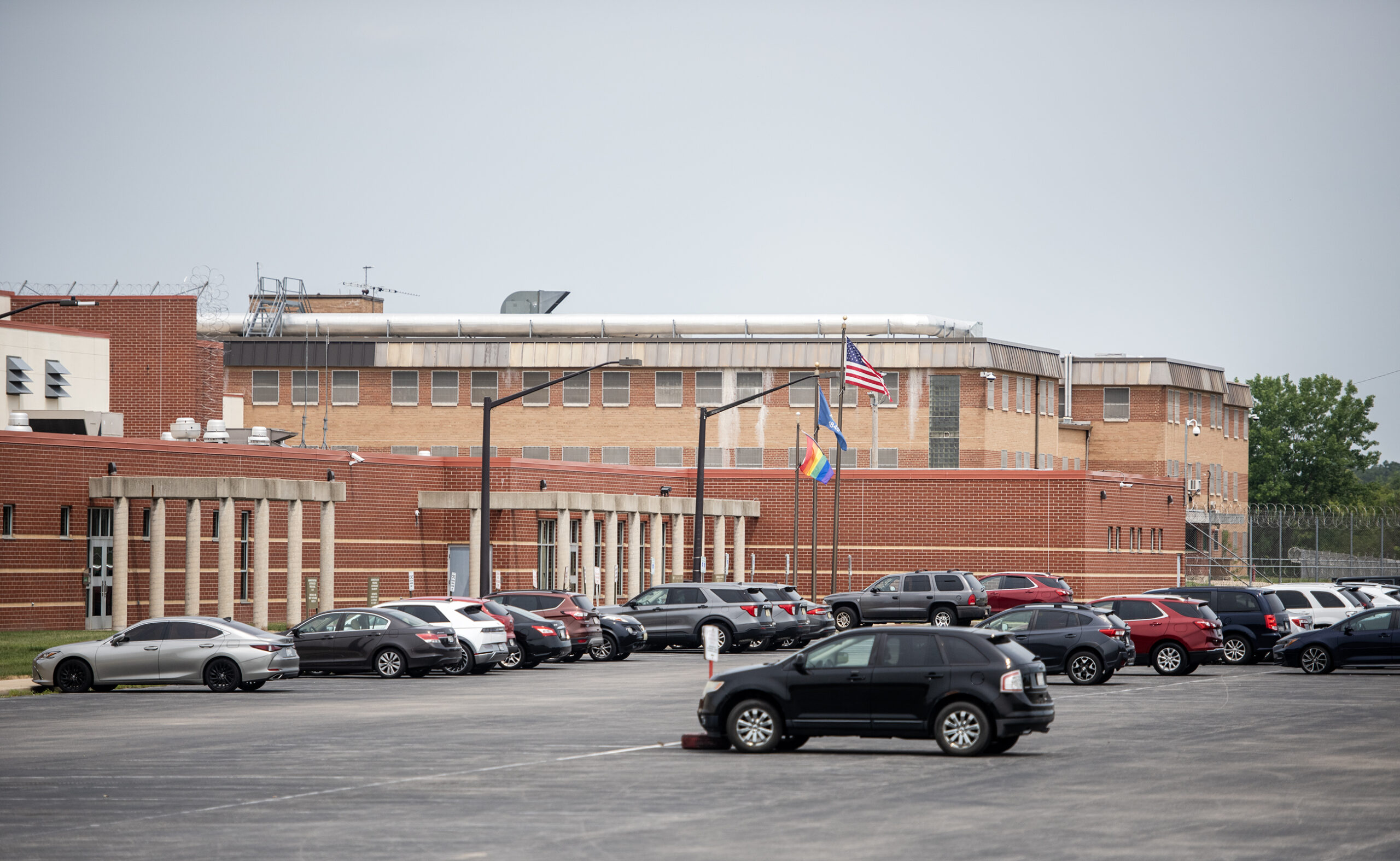
The Milwaukee County Community Reintegration Center, formerly the House of Correction, houses around 1,000 people currently, many of whom are serving one year or less for misdemeanor charges.
Chantell Jewell, the superintendent of the facility, said the event helped to bring “hope to the hopeless.”
“Some of these individuals think they’ve been written off by society, some in society want to write them off. But we’re here to say, ‘You are a very valuable part of this community and we want you to succeed upon release,’” Jewell said.
Jewell said events like the panel are aimed at reducing recidivism, a main goal for Milwaukee County and the facility. Milwaukee’s county’s budget this year provides free phone calls for incarcerated people at the facility. At the end of last year, in-person visits at the center also returned, as “research shows individuals who maintain regular communication with their loved ones experience more positive outcomes upon their re-entry back into the community,” according to a statement from the county.
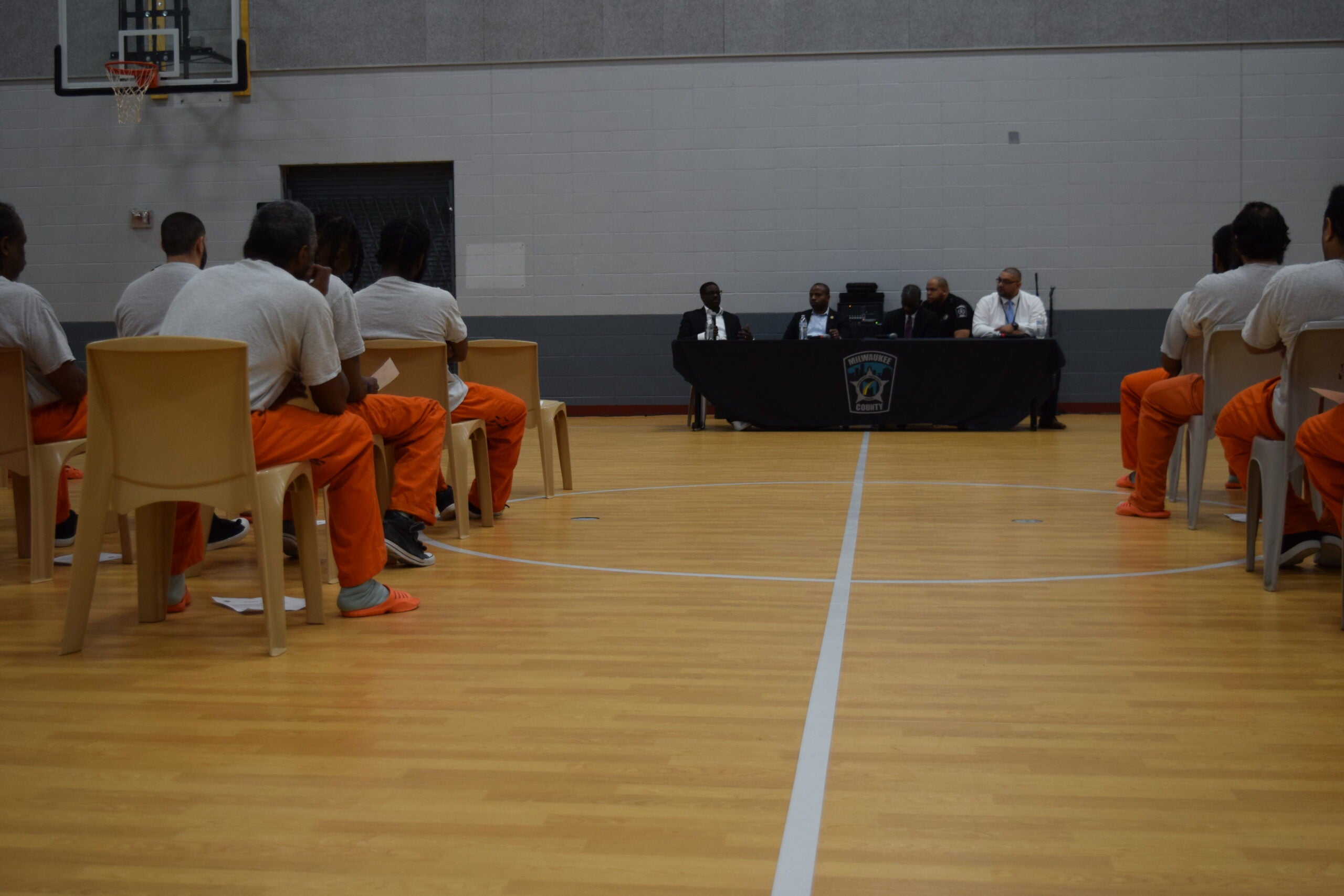
During the panel, Crowley shared his experience of growing up in Milwaukee. He said his family was evicted from the home they were living in three times during a two-year span when he was a kid.
“I would say that definitely helped shaped who I am,” Crowley said. “But it’s also one of the reasons why I focus on affordable housing, getting people access to housing — because you can’t focus on your own mental health and get yourself off drugs if you’re going to be struggling to know where you’re going to lay your head at the end of the night.”
Crowley and Johnson both spoke about the importance of having a mentor. Crowley said when he was 17 years old, he joined Urban Underground, a community organization which works to develop future leaders in Milwaukee.
“Many people are mentors of mine,” Crowley said during the event. “The great thing is to learn from your own failure, but one of the most illuminating things is to learn from someone else’s failures.”
Marshall is working in the kitchen at the center while he waits to get released. He’s jailed on charges of second-degree recklessly endangering safety and fleeing police.
“So I know when I get up out of here, through God’s grace, I’ll be on track and do what I’m supposed to do,” Marshall said.
Wisconsin Public Radio, © Copyright 2025, Board of Regents of the University of Wisconsin System and Wisconsin Educational Communications Board.

